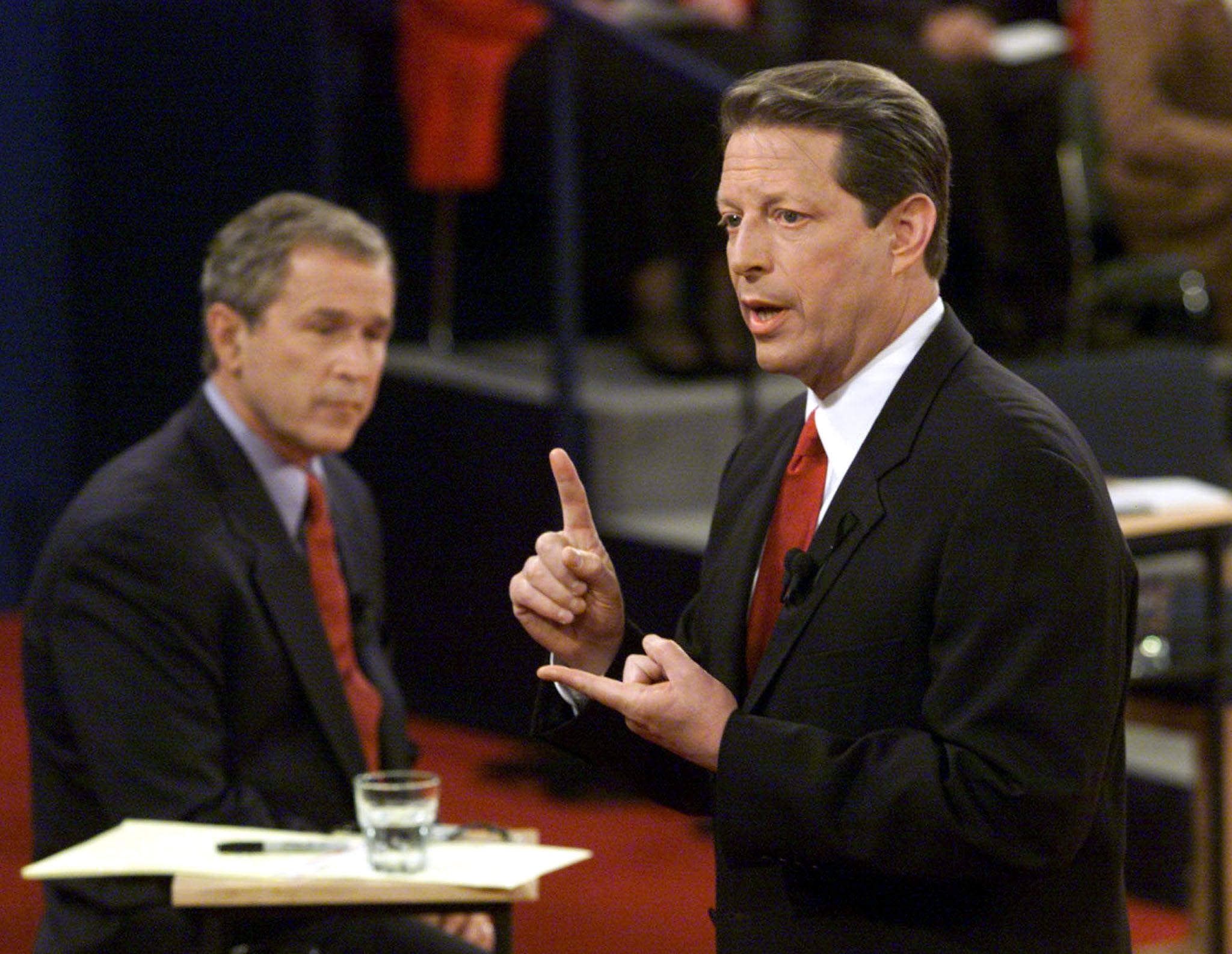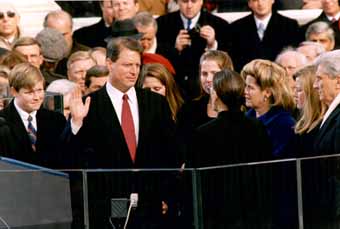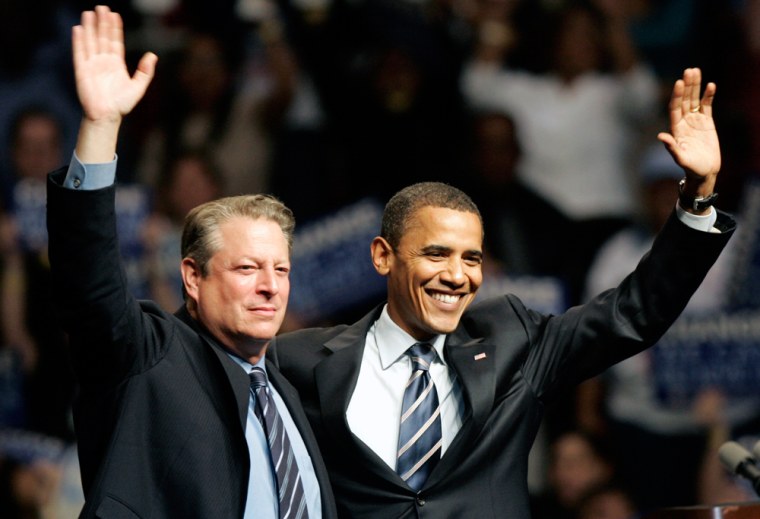Al Gore: Champion of Climate Action and Political Leadership
Introduction:
Al Gore stands as a towering figure in American politics and environmental advocacy, renowned for his steadfast commitment to addressing the urgent issue of climate change. From his tenure as the 45th Vice President of the United States to his subsequent role as a leading voice in the global climate movement, Gore has dedicated his life to raising awareness about the environmental challenges facing the planet. This essay delves into the life, contributions, and enduring impact of Al Gore on both political and environmental fronts.
Early Life and Political Beginnings:
Born on March 31, 1948, in Washington, D.C., Albert Arnold Gore Jr. grew up in a politically engaged family, deeply influenced by the public service of his father, Albert Gore Sr., who served as a U.S. Senator from Tennessee. Gore's upbringing instilled in him a sense of duty and a passion for public service. He attended Harvard University, where he developed an interest in environmental issues and began his political journey. Gore's political career began in 1976 when he was elected to the U.S. House of Representatives, representing Tennessee's 4th congressional district. During his time in Congress, he emerged as a strong advocate for environmental protection, co-sponsoring legislation to safeguard clean air and water. His commitment to environmental causes earned him respect from colleagues on both sides of the political aisle.
Gore's political career began in 1976 when he was elected to the U.S. House of Representatives, representing Tennessee's 4th congressional district. During his time in Congress, he emerged as a strong advocate for environmental protection, co-sponsoring legislation to safeguard clean air and water. His commitment to environmental causes earned him respect from colleagues on both sides of the political aisle.
Vice Presidency and Environmental Leadership:
In 1992, Al Gore was chosen as the running mate for Democratic presidential candidate Bill Clinton. As Vice President, Gore played a pivotal role in shaping the administration's environmental agenda. He championed policies aimed at reducing greenhouse gas emissions, promoting renewable energy, and preserving natural resources. Gore's efforts culminated in the signing of the Kyoto Protocol in 1997, a landmark international agreement aimed at combating global warming.
Following his tenure as Vice President, Gore turned his attention to environmental advocacy on a global scale. In 2006, he released the documentary film "An Inconvenient Truth," which brought the issue of climate change to a wide audience. The film, which won two Academy Awards, presented compelling scientific evidence of the dangers posed by global warming and called for urgent action to address the crisis.
Environmental Activism and Impact:
In the years since "An Inconvenient Truth," Al Gore has remained at the forefront of the climate movement, tirelessly advocating for solutions to the climate crisis. He founded The Climate Reality Project, a non-profit organization dedicated to mobilizing public awareness and action on climate change. Through initiatives such as the "24 Hours of Reality" broadcast and the Climate Reality Leadership Corps training program, Gore has sought to empower individuals and communities to become leaders in the fight against climate change.
Gore's advocacy efforts have had a profound impact on public perception and policy action on climate change. His ability to communicate complex scientific concepts in a clear and compelling manner has made him a powerful voice for environmental action. Gore's work has inspired millions of people around the world to take action to reduce their carbon footprint and advocate for policies that will protect the planet for future generations.
Legacy and Continuing Influence:
As the world grapples with the urgent challenges posed by climate change, Al Gore's leadership and vision remain as relevant as ever. His tireless efforts to raise awareness about the issue and mobilize action at the grassroots level have helped to elevate climate change to the top of the global agenda. Gore's legacy serves as a reminder of the importance of political leadership, scientific integrity, and public engagement in addressing the defining issue of our time.Al Gore's contributions to both politics and environmental advocacy have left an indelible mark on the world. From his early days in Congress to his tenure as Vice President and his ongoing work as a climate activist, Gore has demonstrated a lifelong commitment to making a positive difference. As we continue to confront the challenges of climate change, Gore's example will undoubtedly inspire future generations to take up the mantle of environmental stewardship and work towards a sustainable and prosperous future for all.
Throughout his career, Al Gore has faced criticism and skepticism, particularly from those who deny the scientific consensus on climate change or question his motives. Some critics have accused him of using the issue of climate change for political gain or personal enrichment, pointing to his investments in green technology companies and his role as chairman of Generation Investment Management, a sustainable investment firm. However, Gore has consistently maintained that his advocacy is driven by a genuine concern for the future of the planet and a desire to leave a positive legacy for future generations.
Despite the challenges and controversies, Gore's impact on the global conversation surrounding climate change cannot be overstated. His efforts have helped to galvanize public support for climate action and push governments around the world to take meaningful steps to address the crisis. The Paris Agreement, signed in 2015 by nearly 200 countries, stands as a testament to the growing consensus on the need for collective action to combat climate change, with Gore playing a key role in its negotiation and implementation. In addition to his environmental advocacy, Gore has continued to be involved in politics and public service. He has written several books on climate change and the environment, including "Earth in the Balance" and "The Future: Six Drivers of Global Change," which explore the interconnected challenges facing humanity in the 21st century. Gore's work as a public speaker and educator has helped to raise awareness about the urgency of the climate crisis and inspire action at all levels of society.
In addition to his environmental advocacy, Gore has continued to be involved in politics and public service. He has written several books on climate change and the environment, including "Earth in the Balance" and "The Future: Six Drivers of Global Change," which explore the interconnected challenges facing humanity in the 21st century. Gore's work as a public speaker and educator has helped to raise awareness about the urgency of the climate crisis and inspire action at all levels of society. As the world grapples with the ongoing impacts of climate change, from rising temperatures and sea levels to extreme weather events and biodiversity loss, the need for bold and decisive action has never been greater. Al Gore's leadership and advocacy have helped to mobilize millions of people around the world to demand action from their leaders and work towards a more sustainable and equitable future.
As the world grapples with the ongoing impacts of climate change, from rising temperatures and sea levels to extreme weather events and biodiversity loss, the need for bold and decisive action has never been greater. Al Gore's leadership and advocacy have helped to mobilize millions of people around the world to demand action from their leaders and work towards a more sustainable and equitable future.
In conclusion, Al Gore's contributions to environmental advocacy and political leadership have had a transformative impact on the world. From his early days in Congress to his tenure as Vice President and his ongoing work as a climate activist, Gore has demonstrated a steadfast commitment to addressing the urgent issue of climate change. As we continue to confront the challenges posed by a warming planet, Gore's example serves as a reminder of the power of individuals to effect change and shape the course of history.




![[FAILED] Engage2Earn: McEwen boost for Rob Mitchell](https://cdn.bulbapp.io/frontend/images/c798d46f-d3b8-4a66-bf48-7e1ef50b4338/1)







































